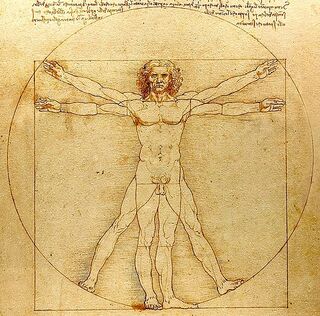Trauma
What Is a RENaissance Group? The Antidote to 2020's Traumas
A RENaissance group feeds the mind and heals the heart.
Posted April 5, 2021 Reviewed by Jessica Schrader
Key points
- RENaissance groups are social groups where group members are aligned according to implicit rules, expectations and norms (RENs) guiding behavior.
- RENaissance groups can help heal the wounds of isolation, loneliness, and depression caused by the traumas of 2020.
- RENaissance groups aspire to the Renaissance ideal of balance between traits and endeavors: intellectualism and emotion; science and art; etc.
In a recent New York Times interview, palliative care physician Dr. Diane E. Meier said that when it comes to the emotional pain caused by COVID and other existential traumas, "the only treatment for that is relationship, attention, sitting with."
The year 2020 was one replete with trauma: whether it was the loss of life and freedom caused by the COVID pandemic, too many episodes of racial injustice, or the acrimony of a bitter, contested election, we all have wounds that need to heal from this 'terrible, horrible, no good, very bad' year. In and of themselves, each of these traumas would be enough to create a PTSD epidemic, but with all of them being magnified on our rectangles, stoking crescendos of emotion, we have each been forced to make a decision: fight or flee.
For those who have continued to fight—with friends (now ex-friends), family members (now estranged kin), and trolls of all stripes—these escalating battles have destroyed relationships, creating a barren wasteland of social isolation. For those who have chosen to flee (attempting to heal in private), this has meant walking away from relationships before they've ended in irreparable conflict. In both cases, relationships have either been suspended or permanently lost, further deepening the wounds of loneliness and depression caused by 2020s traumas. But now it's time to heal: it's time to rebuild our social networks.
Rebuilding social networks doesn't necessarily mean reinvesting in social media. In fact, I think social media exposure should still be minimized as we attempt to heal and rebuild. Instead, I propose a different remedy: RENaissance Groups. A RENaissance group is a special type of social gathering where group members are aligned with respect to the Rules, Expectations, and Norms (RENs) that implicitly guide behavior. As described in a previous post, gender plays a significant role in the RENs we adopt as children because boys and girls are socialized very differently. However, as we proceed through adolescence, our hobbies and vocational pursuits, and ultimately our values, lead us to further refine our RENs.
The reason for forming groups around a common set of RENs is because RENs are largely implicit, adopted after years of learning to do as the Romans do, when in Rome. People who share common RENs already know the unspoken shibboleths of their larger social groups, and thus they make fewer faux pas. While it may be the case that building groups around sex and gender variables is the easiest way to start a RENaissance group, I discourage people from making absolute rules of inclusion based solely on sex and gender. In fact, in the current climate, I have found that people's political and existential beliefs may be a better determinant of shared RENs than sex or gender.
Since 2007 I have been part of a RENaissance group and this group has been one of the most important parts of my life. Based on the experiences of my own RENaissance group, I offer the following recommendations for starting your own group:
Group Composition and Size
Selecting group members that are appropriate is the most important part of forming a new RENaiassance group. Although I've found that the best group interactions occur when there are six to eight members present, it is better to start a group with just three or four members who have similar RENs than to have a larger group that includes members that might not be appropriate. Inviting new group members needs to be done carefully, and only people whom a current member knows well should be invited. This is to ensure that people feel safe opening up personal details about themselves without fear that they will be harshly judged for the things they expose or the opinions they express about each meeting's topic.
Frequency and Duration
When my RENaissance group first began nearly 15 years ago, we met in person, every other month, and meetings would last about four hours on a Saturday morning. That frequency and duration remained until COVID reached our shores last March, and since then we've been meeting weekly for two hours on Thursday nights on Zoom. Meeting more frequently has made the group even closer and our meetings have gone a long way towards inoculating each of us against the isolation, loneliness, and depression that has afflicted so many during the COVID pandemic. Furthermore, using Zoom now has also allowed us to include members who are geographically distant or traveling. As for the RENaissance group you may start, it might be good to begin slowly, perhaps with monthly meetings, and then adjust upward or downward from there.
Format
Those familiar with Dialectical Behavior Therapy (DBT) know that the goal of treatment is to balance our emotional mind with our reasonable mind. In essence, DBT tries to combine the best of our intellectual essence with the vibrance of our emotional experiences. I believe that a RENaissance group should do the same, but in different ways as DBT, since RENaissance groups are ostensibly social groups, not therapy groups.

Here it is important to note that the use of the term "Renaissance" for such groups is not only for the purposes of including the "REN" concept described above, but also because the highest goal of such groups is to provide a space for people to pursue the Renaissance ideal: proficiency in multiple areas of human development, including intellectual, emotional and physical domains, as well as cultivating an understanding of diverse subjects, like art, science, and metaphysics.
To achieve this balance, in my RENaissance group we start each session by "checking-in." This is an opportunity for each person to spend a few minutes talking about personal issues, including those with a strong emotional component. Appropriate items for check-ins might include problems with any relationship, financial difficulties, health problems, etc. As it relates to check-ins, it is very important that each person refrains from playing the role of therapist (even if a therapist is present in the group). As noted in 4 Tips to Help Family and Friends, when helping those we care about, less is more, and laypersons can err when trying to do too much. In RENaissance groups, however, just sitting with and validating other group members during the checking-in period often provides them with the right amount of support they need.
In contrast to the emotional component of checking-in, RENaissance groups also aim to provide intellectual stimulation in the form of a topic. Topics offer group members an opportunity to learn about things with which they are unfamiliar but are of interest to others in the group. In this way, topics have the potential to yield stimulating discussions where people are continually exposed to new things. In my group, topics have included articles on psychology, math, and quantum physics; religious poetry; the essence of jazz; Brené Brown videos on shame and vulnerability; and podcast episodes of RadioLab and On Being. We also did a topic on Bitcoin before it was a thing, and a few group members made out pretty well adding this to their investment portfolios (nothing says that a RENaissance group can't be profitable as well).
Topics can be on any stimulating subject that may interest the group but I recommend that homework for the topics be short—something that can either be read, viewed, or listened to in an hour or less. It is also important that each member of the group gets an equal opportunity to present a topic over the course of a year.
-----
For those interested in topics that have been used in some of my personal RENaissance group meetings, feel free to check out an abbreviated list here and use any of the topics provided for your own meetings.




